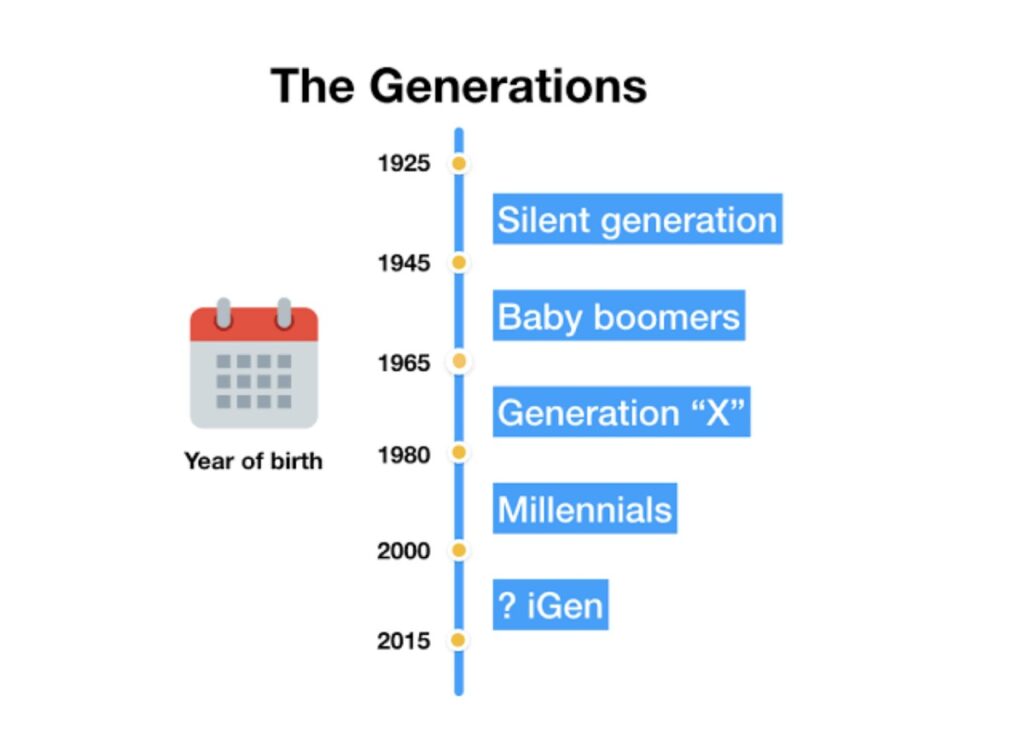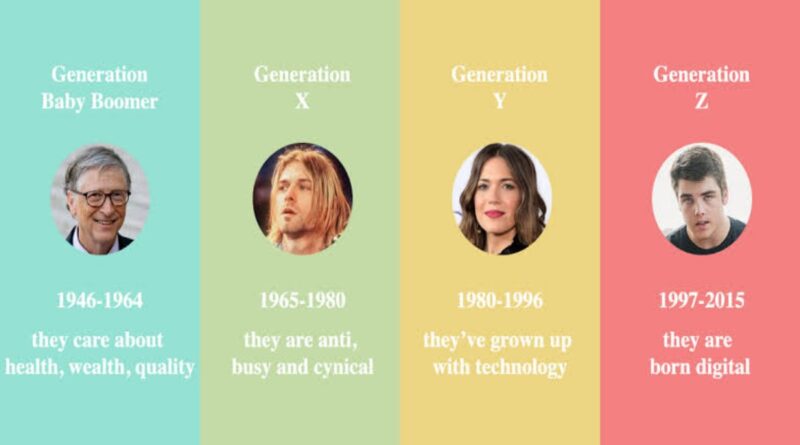Continuous Decline in Critical Thinking among Nigerian University Students and the Role of GenX
By Abdelghaffar Amoka
I was teaching a first-year class in 2013, it was an engineering class, and I paused to ask this question: “If you are asked to pay the remaining 4 years of school fees and then you graduate at the end of the semester, how many of you will go for it? And about 95% of the class raised their hands.
I asked why and one of them was courageous to tell me that they came for a certificate and that if the university is willing to give it at the end of the first semester, then why wait for 5 years. And Dr. Jean Twenge, a US-based Author in 2017 stated that an iGener is more likely than previous generations to go to college to get a good job and less likely to go to get an “education.
I reflect over my 16 years as a university teacher and I realized how the quality of students and thought have reduced. I used to teach a course that a number of students struggled to pass. It was actually a simple course but my style was such that you need to have a basic understanding of the concept of the course to pass.

Cramming the entire lecture note without understanding the concept may not help you to pass. Of course, I got all kinds of names. Then, I had a 6 years break and when I returned to teach the course I observed a sharp difference between the students I taught from 2005 to 2008 and those that I have taught between 2016 and 2019.
If I should give the same question paper of the exam conducted in 2007 to the current students, the best student in the class will struggle to pass even though he may even be taught better than 2007 students. To make the students attend class, I take attendance during every lecture.
In 2019 I declared that I won’t be taking attendance and it was not a surprise that only about half of the students attended my class for that year and it also reflected on their performance.
The kids of this generation are supposed to be smarter, but that does not reflect in their academic activities, especially in Nigeria. So, what are we getting wrong? Can this be linked to their slow and protected upbringing and/or the poor state of early childhood learning and development?
READ ALSO: iGen: The Generation in the University for a Certificate and not an Education.
Early Childhood Learning and Development from the age of 2 to 5 years is very important within that crucial age of a child. As stated by Kerry McDonald, a one-year-old is barely walking while a two-year-old gleefully sprints away from you. A four-year-old is always moving, always imagining, always asking why, while a five-year-old may start to sit and listen for longer stretches.
At the age they are supposed to be running around the house and learning to talk, they are enrolled in school and confined in a classroom. And the school has no provision to properly cater for Early Childhood learning and development. At that age, they are supposed to be imagining and asking why, they are forced to learn how to write and read.
Unfortunately, early childhood learning and development is not captured in our primary school curriculum in Nigeria. The respective schools design a program for the kids and it varies from school to school and they use different books. The parents most times influence the curriculum.
I had an interaction with the Head Teacher of a private school who said the kids in their Nursery section don’t use to write but do more play, but that some parents complained why their kids are not writing while their friends’ kids in other schools are writing.

They are wondering why they are paying for their kids to go play in a school. I was informed they even want their kids in pre-nursery to be writing to justify the fees paid. That was how they introduced writing in the nursery section.
There are different stages of early childhood learning development. Up to the age of 5, before they will begin to sit to listen and learn, the kids are meant to be aware of their environment. They naturally wonder why things are the way they are around them.
That is the reason they naturally ask a lot of questions that the parents are supposed to answer, but they are confined in a classroom and unfortunately, the Teachers will most of the time not have enough time to answer all the kids in the class.
They are supposed to learn to identify letters with the sound, be able to put different sounds together, then learn to write them. But instead of developing programs that help the mental development of the kids at that stage, they are unfortunately made to learn States and Capitals, A for Apple, C for Cup, etc., and copy from the board what they don’t know. How the learning of States and Capitals helps in their mental development beats my imagination.
These programmed kids with low IQ are then carefully guided through primary school with beautiful end of term results based on how the parents want it, then through expensive private secondary schools, WAEC and JAMB results are arranged for them based on the parents’ spec. As far as the parents are concerned, their kids are academically sound following the data in the report card/sheet.
The necessary buttons are then pressed to get admitted for any available course in the university. They get to write their first real examination in the University. With reality staring at the faces of some of them, some poor students from some Government Science Secondary Schools will have to conduct Tutorials for them to pass their courses in the Public Universities.
They will eventually graduate and the parents press the available buttons to find jobs for them or even buy them a job. Most have no initiative, they are not goal getters. That is the making of our leaders of tomorrow’s leaders.
I tried to compare my experience with our students with an experience with a student in a University in Europe. I supervised a Master’s student in 2015 during my Postdoc fellowship and her work was in two phases. A preliminary study and the actual research which was part of my Postdoctoral activities. Somewhere along the line, time was not on her side and the deadline was approaching.
The supervisory team met and it was agreed that she should write her report using the preliminary report. I conveyed the message to her and she disagreed with our decision. She said the whole aim of her dissertation is not achieved without concluding the second phase. She said she will do whatever it will take to conclude it. I reported back to the committee and she got a two weeks extension.
I took her to the lab to set up the high voltage source for the work and the work was done, published and she is working with Siemens. If she was one of our students here, she will go and do testimony that God answered her prayer and her work was reduced. We are not developing critical thinkers and goal-getters like we use to and i think the damage started from early childhood education.
Early Childhood education is getting worse for the post-iGen generation born from 2013 to date and we all pretend all is well with the kids. We are rather working harder to make more money for their comfort without a critical thought on the mental development of these kids.
Their protected upbringing from our perception that we do not want them to pass through the hardship we passed through that actually shaped our world, has shielded them from the reality of the world we live in. With their slow and protected upbringing, independent nature, and weak mental development, what future are we preparing them for in a tough and rough country like Nigeria?
We seem to have little or no time for our kids from age 2 to 5, an age they need their parents most. The kids spend more time with the Nanny and the classroom. And unfortunately, our education curriculum for Early Childhood Education does not make provision for the required mental development from age 2 to 5.
Creative thinking and asking questions are not part of the program. We need to find a way to fill in the blank. It is not enough to push them to schools to give us the time to make enough money for them to spend, they need the wisdom to spend the money.
We need to give them the tools to make a difference. We need to equip our kids with the confidence and the knowledge of real-life experiences. We (GenX) are tough and the world is getting tougher. We need to raise tougher kids that will bring joy and positive change to our communities and not the quick cash kids.
Abdelghaffar Amoka Abdelmalik, PhD. Writes from the Department of Physics, Ahmadu Bello University, Zaria.
For Advert Placement, Sponsorship, support, Article submission, suggestion, etc, Contact us: info@theabusites.com, +2349015751816 (WhatsApp)








